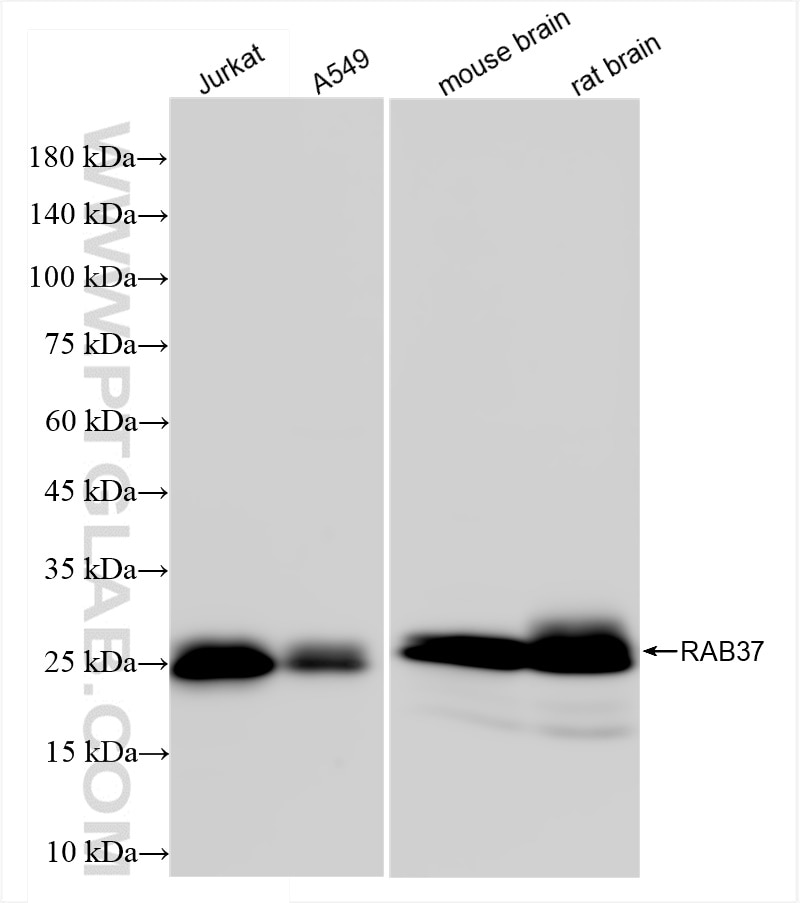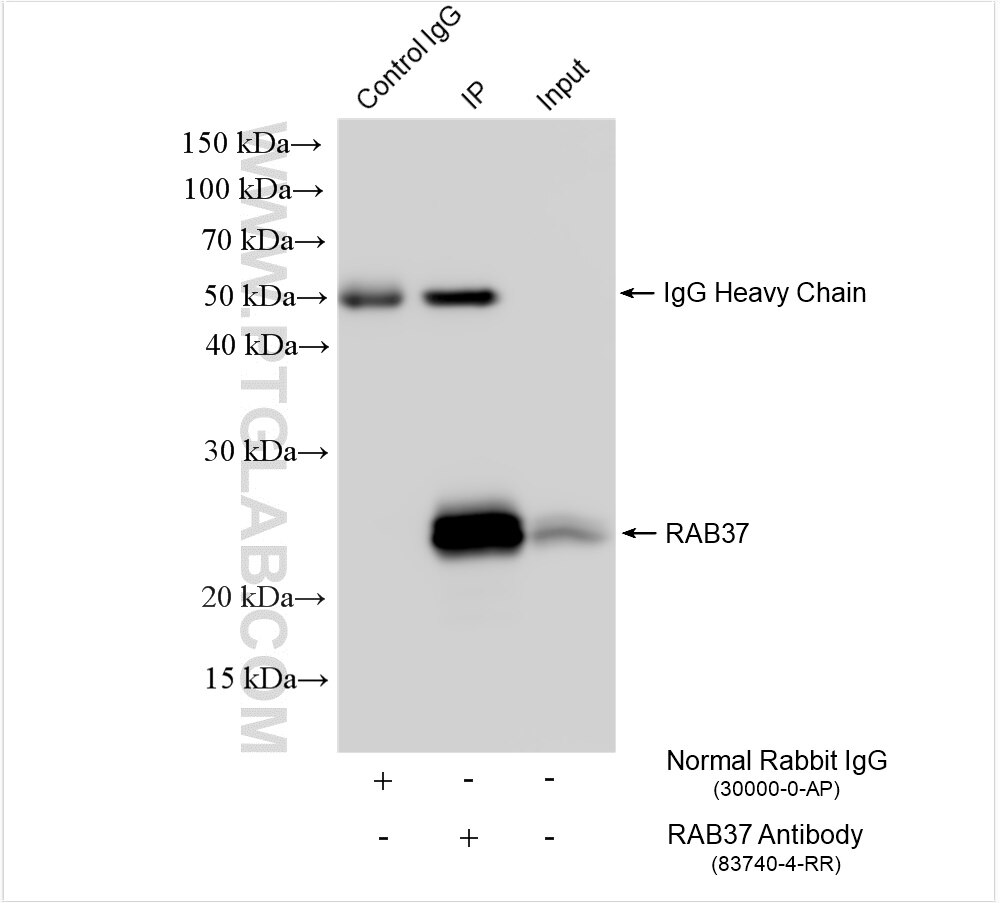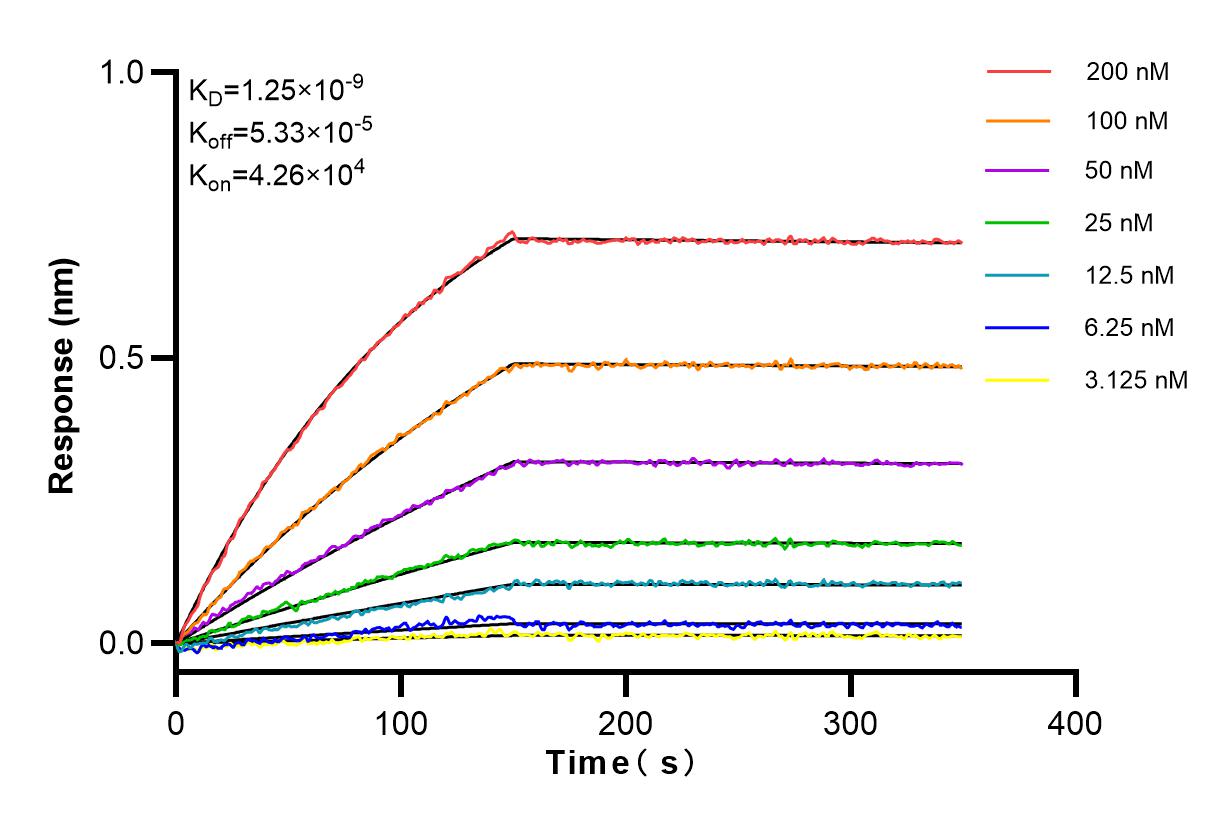Tested Applications
| Positive WB detected in | Jurkat cells, A549 cells, mouse brain tissues, rat brain tissues |
| Positive IP detected in | mouse brain tissue |
Recommended dilution
| Application | Dilution |
|---|---|
| Western Blot (WB) | WB : 1:5000-1:50000 |
| Immunoprecipitation (IP) | IP : 0.5-4.0 ug for 1.0-3.0 mg of total protein lysate |
| It is recommended that this reagent should be titrated in each testing system to obtain optimal results. | |
| Sample-dependent, Check data in validation data gallery. | |
Product Information
83740-4-RR targets RAB37 in WB, IP, ELISA applications and shows reactivity with human, mouse, rat samples.
| Tested Reactivity | human, mouse, rat |
| Host / Isotype | Rabbit / IgG |
| Class | Recombinant |
| Type | Antibody |
| Immunogen | RAB37 fusion protein Ag3717 Predict reactive species |
| Full Name | RAB37, member RAS oncogene family |
| Calculated Molecular Weight | 223 aa, 25 kDa |
| Observed Molecular Weight | 25 kDa |
| GenBank Accession Number | BC016615 |
| Gene Symbol | RAB37 |
| Gene ID (NCBI) | 326624 |
| RRID | AB_3671338 |
| Conjugate | Unconjugated |
| Form | Liquid |
| Purification Method | Protein A purfication |
| UNIPROT ID | Q96AX2 |
| Storage Buffer | PBS with 0.02% sodium azide and 50% glycerol , pH 7.3 |
| Storage Conditions | Store at -20°C. Stable for one year after shipment. Aliquoting is unnecessary for -20oC storage. 20ul sizes contain 0.1% BSA. |
Background Information
RAB37, as a small GTPase, plays important roles in several cellular processes through intracellular membrane traffic. RAB37 can regulate insulin secretion in β-cells 7 and TNF-α secretion from activated macrophages. In allergic responses, RAB37 regulated mast cell degranulation. RAB37 has been identified to be a tumor suppressor and it regulated exocytosis of several proteins including TIMP metallopeptidase inhibitor 1 (TIMP1), secreted frizzled-related protein-1 (SFRP1) 12, thrombospondin-1 (TSP1), and soluble ST2.
Protocols
| Product Specific Protocols | |
|---|---|
| WB protocol for RAB37 antibody 83740-4-RR | Download protocol |
| IP protocol for RAB37 antibody 83740-4-RR | Download protocol |
| Standard Protocols | |
|---|---|
| Click here to view our Standard Protocols |







